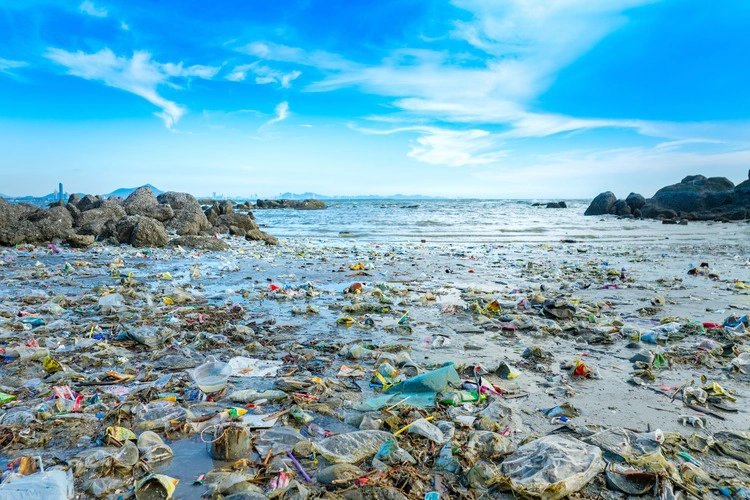
Landmark date reveals the exact moment humans can no longer properly manage the plastic waste produced annually
By
Today is officially Plastic Overshoot Day – the day from which any further plastic produced this year will surpasses the capability of waste management systems to handle such – in a new report released by EA Earth Action.
With 117 days left in 2024, that means 117 days of plastic overshoot are now to go, sparking concerns about the planet’s ability to effectively control the estimated 220 million tonnes of plastic produced in total this year.
This year’s Plastic Overshoot Day comes one day after 2023’s – which was on the 4th September – meaning a one-day reprieve for this year’s date. However, despite an improvement in plastic waste management practices, the overall quantity of mismanaged plastic waste remains more or less unchanged due to increasing plastic waste production every year.
‘Today is a stark reminder that the time for change is now,’ said Founder at Mover Plastic Free Sportswear, Nicolas Rochat. ‘The numbers are clear – three-quarters of the way through the year, we have already exhausted our ability to hold back the plastic tide. Continuing down this path of uninhibited plastic production is unconscionable and threatens the prosperity of both businesses and humankind.’
The report took into account plastic waste from the textile industry and household waste, compared to analysis in previous years that only focused upon plastic waste alone. On average, each person will generate around 28kg of plastic waste each year – and nearly 70 per cent of the global population now live in areas where plastic waste exceeds the ability to adequately manage it. Just 12 countries are responsible for 60 percent of the world’s mismanaged plastic waste, the top five being China, Russian Federation, India, Brazil, and Mexico.
2024’s Plastic Overshoot Day lands ahead of the final round of negotiations in November to develop an international legally binding treaty on plastic pollution, in Busan, Republic of Korea.
Other ways in which countries are coming together in the battle against plastic pollution include the UN Global Plastics Treaty – of which the US was the latest to join –the world’s first comprehensive effort to regulate plastic, with objectives ranging from curtailing production, to banning specific chemicals and establishing ambitious recycling targets.




